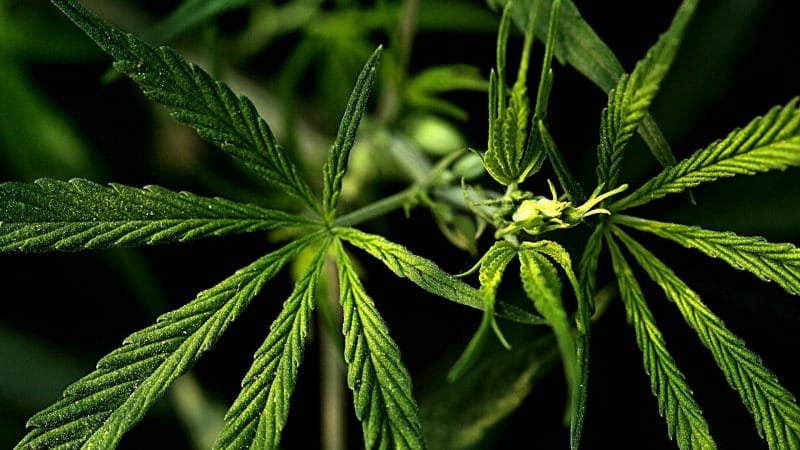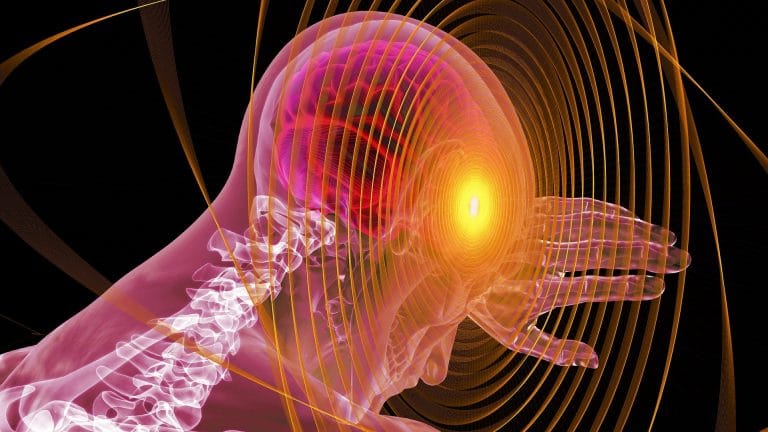Hemp vs Marijuana: How Are They Different?

Why is knowing the difference between hemp and marijuana so important? For starters, it can save you from a lot of legal trouble. Secondly, you will be able to enjoy the effect in the way you intended.
Both hemp and marijuana are divine plants. Their origins are quite similar, and it could be said that these are ancient species that have been helping humanity for centuries. However, this is where their subtle differences expose themselves and the hemp vs marijuana story begins.
They are cultivated in a different manner. The looks are similar, yet distinctive. Moreover, the industry is very much focused on different parts in order to use them to our benefit. True, the health benefits are present in both of them, yet at times far from being identical. As for the “high,” it is arguable whether the hemp plant can even provide it.
Let’s dive in and analyze the difference between marijuana and hemp one bud at a time.
Is Hemp Marijuana or Not?
Both hemp and marijuana do belong to the same Cannabis species, but they are far from identical. The confusion usually springs from the name and the fact that the terms marijuana and cannabis are used interchangeably, whereas taxonomically speaking, cannabis is a species with its subspecies.
To end all the confusion once and for all, in this article we’ll be discussing only two cannabis varieties:
- Industrial hemp, which is a type of Cannabis sativa
- Marijuana, also known as weed, cannabis (yes, indeed), pot, grass, Mary Jane, etc., which can either be of a Cannabis sativa, Cannabis indica, or Cannabis ruderalis type.
Here, the term “cannabis” will be used to determine the whole species. We’ll refer to the psychoactive Cannabis sativa, indica, and ruderalis types as “marijuana” while “hemp” will be used to denote the non-psychoactive, industrial type of Cannabis sativa.
Hemp vs Marijuana: The Origins
Overall, cannabis as a species is said to be over 12,000 years old, according to some sources, making it one of the oldest cultivated crops. It first appeared in the steppes of Central Asia, around Mongolia and southern Siberia.
From there on, the plants went their own ways. Hemp was mostly blooming and spreading in China, while marijuana, as one of its types conveniently suggests (Cannabis indica), was mostly cultivated in India. The Himalayan mountains served as a practical obstacle for hemp and marijuana to evolve separately, without mixing.
As humans are keen travelers, the plants were spread onwards to Japan, Korea, the Balkans, and the Caucasus Mountains in Europe (the latter eventually evolving into Cannabis ruderalis) around 2000 BC, with distinct purposes already—industrial and medicinal.
Hemp was taken by nomads who saw it as an excellent plant for making sales, ropes, fibers and the like, whereas marijuana was specifically chosen in order to be used for relaxation or as a part of religious ceremonies.
And finally, in the 1600s, they finally conquered the remaining continents, when they arrived in America.
Hemp Plant vs Marijuana Plant: The Physical Differences
Now, let’s talk a little bit about the visual differences and cultivation practices.
- Height. This is the first thing you notice about these two. At 16 feet high on average (reaching even 20 feet in some cases), hemp is obviously much taller than marijuana (3 to 6 feet tall).
- Leaves. Hemp’s leaves are longer and narrower, while marijuana has a bushier appearance due to its height and wider and broader leaves that may overlap. Also, when comparing marijuana vs hemp, there is a color distinction. The color of marijuana leaves is a darker green, even leaning to blue, in comparison to the color of hemp’s leaves.
- Stalks. Those in hemp plants are more wiry-like, and as we shall soon see, much more important in terms of the manufacturing industry than marijuana’s stalks.
- Flowers. Generally, marijuana’s flowers are heavier than hemp flowers as they are more solid.
- Buds. For some reason, the question “does hemp have buds” seems to be very popular in the internet community, so let us clear any doubts by saying the answer is—yes. The hemp versus marijuana confusion in this case probably arises from hemp’s popularity outside of the cannabis industry and the fact that smoking hemp buds does not get you high. By the way, the color of hemp buds varies from red to purple. On the other hand, marijuana buds are dark purple.
- Visual representation. As for the universal, well-exploited sign representing cannabis or marijuana in general, that is most commonly marijuana, not hemp.
- Gender differences. What is the difference between hemp and marijuana regarding their genders? None. In spite of the popular opinion, both species have male and female plants, but not all of them are equally wanted by the farmers. In both cases, male plants are not deemed profitable, but rather a nuisance.
Cultivation Difference Between Hemp and Marijuana
No matter how much their nugs may look alike, the process of growing and harvesting has its differences.
- Space requirements. For starters, cultivators have to think about the required space. While hemp is a plant that is grown in groups, marijuana plants have to have at least 40 inches between them.
Also, hemp is best grown outdoors, though the methods vary greatly depending on the final purpose—seed, CBD, or fiber. The marijuana plant is usually cultivated indoors as it is easier to monitor, thus giving bigger yields. Indoor cultivation accelerates the maturing stage by controlling the temperature and light exposure. Of course, marijuana can be grown outdoors too, but with less success.
- Maturing. Another difference between marijuana and hemp is their maturing speed. Marijuana reaches the flowering period faster than hemp (8 to 9 weeks, as opposed to 12 to 14 weeks).
- Flowering. Still, there is one huge similarity, and it concerns the flowering period. Once the flowering process begins, farmers begin the elimination of male plants in order to get buds rich in CBD and THC.
At one point, all the male plants will be eliminated from the field. No marijuana–hemp discrepancies here. It takes only a couple of males to pollinate a whole field and ruin it for harvesting CBD. Pollination would cause seed production and fewer flowers. Consequently, CBD content would be very low as it is mostly located in the flowers, while seeds don’t contain CBD at all.
We have already mentioned that you can grow hemp for different purposes. In case you’re growing hemp to obtain CBD, elimination of males is a must. Admittedly, CBD can be obtained from other parts, too, but it’s more complicated and demands more hemp. As for marijuana CBD vs hemp CBD, you’ll find more detailed data in the section below.
- THC testing and harvesting. Once the plants are tested for low THC (below 0.3%), the crops are ready to be harvested. At least, when it comes to hemp.
For both species, though, determining the right harvest time can be challenging, as well as the process itself. Both types of cannabis plant are being meticulously researched to find the ultimate system for the highest yields possible.
Hemp vs Marijuana Products
Now, we get to the fun stuff and the reason why we are all here, and that is to see if a hemp joint is that much different from a marijuana one. Both of these species have found their way into an astonishing variety of consumer goods.
Hemp Products
As we have previously mentioned, hemp cultivation largely depends on the final product. This is what may be obtained:
- Hemp seeds. They are an excellent source of protein, fiber, magnesium, and are qualified as a superfood by some. Rich in oil (30%), they can be eaten raw or hulled, added to salads or smoothies. Shelled hemp seeds are known as hemp hearts. Instead of dairy milk, you could try adding your coffee some milk from hemp seeds. Marijuana seeds are not as suitable, unfortunately.
- Hemp oil. Oil is extracted from the seeds, and while it is CBD-free, it can have several uses. Firstly, you can use it as an edible oil and enjoy its omega-3 concentration. Secondly, the oil can be exploited for making non-toxic soaps, paints, anti-aging creams, biodiesel, detergent, and varnishes.
- Hemp fiber. Hemp stalk gives us its world-famous bast fiber. Its versatility is legendary as it is said to be even stronger than steel in some respects. The fiber is used for making hemp fabric in the textile industry, hemp rope, bags, carpets, canvas, paper, fiberboard, shoes, and plenty of other products. Marijuana fibers are far less durable, and they are not used for making fabric. So, if you get asked “is hemp and marijuana the same thing,” these examples sum things up the best.
- Hemp hurd. Hemp hurd is the soft core of its stem, mostly used for paper, insulation, cement, an addition to plastic, garden mulch, and so on.
- Hemp for medical purposes. As opposed to hemp oil obtained from the seeds, the oil which is extracted from buds is extremely rich in CBD and used to treat a number of physical and mental conditions: anxiety, depression, ADHD, inflammation, cancer, pain, insomnia, and lots of others. It is beneficial for stress management in general. However, in hemp CBD vs marijuana CBD rivalry, the first one loses, as it has low CBD content per plant.
Marijuana Products
Different types of weed are used for different purposes. Marijuana can be used for smoking and vaping and extracting CBD oil, whose application is astounding (medicines, creams, lotions, patches, suppositories).
To make matters simple, it’s best to divide the products into two categories, just as it was done in the states/countries which have legalized marijuana:
- Recreational marijuana. From joints and blunts to gummies and other edibles, recreational marijuana can be consumed in a number of ways to help you unwind and relax, and, of course, get you high.
Another hemp vs marijuana difference comes from the fact that weed will get you “high” and make you unable to focus properly, possibly impairing your sound judgment. The high effect comes from the strong presence of THC.
On the other hand, with a mere 0.3% THC, hemp will not have such an impact so it is impossible to get high from a hemp joint, no matter how much you smoke. What is noted, however, is that hemp will give you a boost of energy, so you could be more diligent about your errands.
- Medical marijuana. In this hemp versus marijuana round, the latter is the winner. The weed plant is used for making marijuana oils, capsules, patches, creams, topicals, edibles, vaporizers, sprays, tinctures…The list is truly extensive, and the combination of CBD, THC and other ingredients is used to our best advantage to help us deal with pain, seizures, insomnia, anxiety, diabetes, cancer, HIV/AIDS, nausea, and much more.
To sum up, marijuana and hemp are similar in a way they ensure relaxation and health benefits. They can contribute to separate industries, though. You’ll never be making bricks out of marijuana, for instance.
Marijuana vs Hemp: THC Issues
Just before the big harvest, hemp is checked for the THC level. So, what does THC stand for and why is it such a big deal?
Tetrahydrocannabinol, or THC, is one of the main ingredients in cannabis, which is well-known for its infamous/adored psychoactive impact. However, that is not to say it is its only purpose. Research about the entourage effect suggests THC is just as needed as CBD for the maximum health benefits, regardless of the hemp–marijuana rivalry.
Exactly how much THC is necessary and what the best CBD to THC ratio is could be a topic for some other discussion, but now we are going to deal with the rule which makes a clear distinction between hemp and marijuana.
What’s the difference between hemp and marijuana that is defined by the law? The THC content.
By definition, hemp contains less than 0.3% THC, which is considered to be THC in traces rather than a mind-altering amount. It is precisely this minimal level that has won the battle for legalization, thereby finally declaring hemp and all its products legal in the whole of the USA. Nevertheless, THC levels in marijuana vary greatly (from less than 10% to 29%), which increases the chances for potentially dangerous effects to occur.
Yet, despite such clear distinction, substantial problems appear in practice, deterring both farmers and consumers.
Hemp CBD vs Marijuana CBD
Finally, we get to the bottom of this “rivalry” and the reason why hemp has been made legal in the first place. It is not for the great insulation or fabric, nor its nutritious oil that hemp was legalized but for the possibility of extracting CBD from it.
So, is there any difference between marijuana and hemp CBD? Sometimes, there are a few discrepancies.
- The bio-accumulation problem refers to accumulating heavy metals from the soil, which hemp is prone to. This means that your CBD oil could be contaminated.
- The CBD extraction process can be performed in several ways, but the two most common ones for obtaining CBD from hemp and marijuana are CO2 and ethanol extraction methods.
Nevertheless, since hemp usually has a smaller concentration of CBD, it takes more hemp material for the same amount of CBD in comparison to marijuana.
- The perfect CBD to THC ratio is a real dilemma for scientists, but it could be deduced that its consequences or results are not uniform. Some people will enjoy pure, singled-out CBD more than THC and CBD combined with terpenes and other native ingredients. For example, the FDA-approved cannabis drug, Epidiolex, is pure CBD oil made from hemp, and it works for epileptic seizures in children.
On the other hand, research shows the best therapeutic benefits for most people are achieved when main cannabinoids are joined with secondary ones. In short, it is recommendable to take CBD and THC for the best results.
- Federal law accepts only CBD extracted from hemp as legal in all 50 states. Marijuana-derived CBD oil can make you test positive on a drug test.
To sum up, is hemp and marijuana the same when discussing CBD’s ultimate effects? If we talk about absolutely pure CBD isolate, the answer is affirmative. So far, there have not been enough studies to claim otherwise, despite the legal status.
As a side note, in case you were thinking about trying synthetically produced CBD, it is not as valuable, according to some reports.
Hemp vs Marijuana: Legal Issues
According to federal law and the DEA, marijuana is a Schedule 1 drug, meaning it is extremely harmful and possesses a negligible medical potential for our health. In short, it is pronounced to be the same as heroin. The main culprit for this is its high THC content. In contrast, hemp has been declared as perfectly safe for farming and consumption. It is fully legal in the US. Or, is it?
Is hemp the same as marijuana in the eyes of the police? Perhaps it should be said: “in the nose,” and the answer, unfortunately, is occasionally affirmative. Namely, marijuana and hemp have a similar scent. Even though some strains have a distinct smell, it’s usually hard to discern between these two.
Unfortunately, there have been several instances of drivers and security guards getting arrested for transporting industrial hemp from state to state. At the moment, the technology used in field tests is not sophisticated enough to tell the difference between hemp and marijuana.
To the truckers’ horror, it usually can’t detect low or high THC content, but just reports the cargo is positive for THC. What is more, the police dogs trained to find drugs will be provoked by industrial hemp just as if it were marijuana.
Despite the fact that hemp is legal to be cultivated, the Farm Bill is still too recent for every state to have altered its laws on this. Therefore, you may get a visit from the police department.
To sum up, some time is needed before everything settles into place and hemp is fully acknowledged as a safe substance.
Final Words
How important is this hemp vs marijuana rivalry? Well, it all depends on what you are looking for. If you are interested in growing either of them, you will see the differences in cultivation abound. Moreover, whether you are a farmer or not, you should be prepared for the consequences of your actions, which despite your best intentions may turn out to be illegal unless you are careful enough.
In case you are keen on buying some products, the difference between hemp and marijuana mostly has to do with whether the product is legal in your state, and whether you wish to relax or treat your illness, or maybe insulate the attic of your home.





